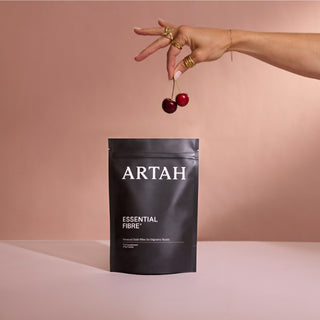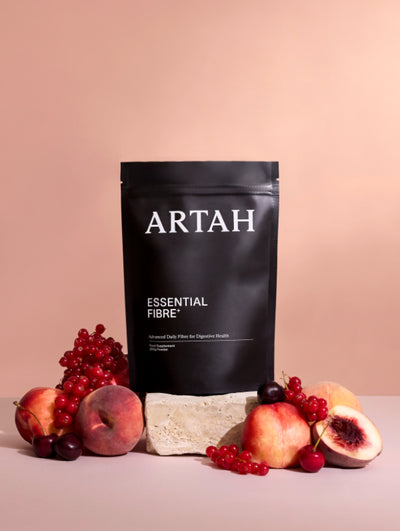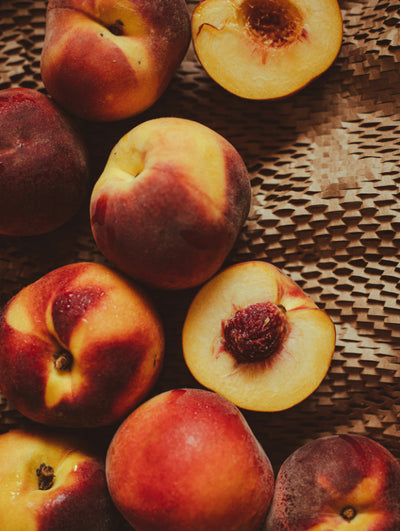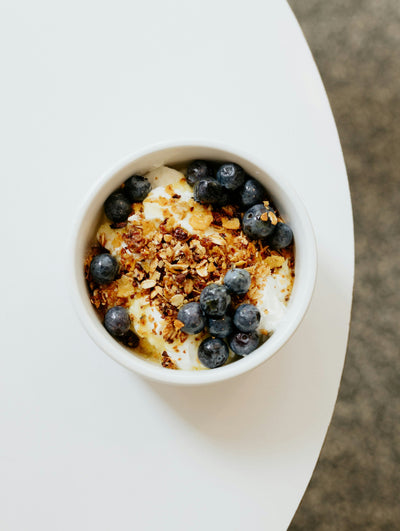Are You Inflamed? - 5 Things You Can Do To Help
Inflammation is the immune system’s natural defence mechanism, activated in response to potential harm – whether from injury, infection or allergy. When this process is triggered, our immune cells release chemical messengers called cytokines which, when balanced, support healing. But when pro-inflammatory signals dominate, they drive chronic inflammation and, over time, disease.
In the short term, inflammation is beneficial – it helps cuts, infections and other issues heal and then subsides. But when it becomes chronic – fuelled by stress, poor sleep, processed food, alcohol or obesity – the body remains stuck in “fight” mode. This not only reduces its capacity to repair, but also accelerates ageing, (contributing to frailty and cognitive decline), raises the risk of chronic diseases such as type 2 diabetes, cancer, Alzheimer’s and cardiovascular disease, and shows up as everyday symptoms like digestive issues, brain fog, low mood and fatigue.
So while inflammation is a vital – and positive – part of the immune response, our aim is to prevent excess through conscious lifestyle choices. The good news? The same choices that drive inflammation can also be used to reduce it. Here’s how.
Adopt an anti-inflammatory diet
The Mediterranean diet remains the gold standard for long-term health. Research shows that women who followed it had a 24% lower risk of cardiovascular disease over 12 years, while other studies link high adherence to a 23% lower risk of premature death than those with low adherence. (1,2)
Rich in antioxidants, minerals, omega-3s and vitamins, it’s also one of the most effective ways to reduce inflammation. (3)
Prioritise plants – brightly coloured fruits and vegetables – alongside whole grains, beans, nuts, healthy fats (especially extra virgin olive oil), and plenty of oily fish or chicken. Dairy should be enjoyed in moderation, usually fermented (think yogurt and cheese), while red meat should be eaten sparingly.
Avoid common inflammatory culprits: processed foods, refined sugars, cured meats, excess alcohol. And don’t forget to stay hydrated – for an extra boost, try our Cellular Hydration.
Move your body
Movement – whether a brisk walk, a HIIT workout or gentle yoga – helps lower inflammation markers. Even light activity, like swimming or stretching, can make a noticeable difference. However, you should avoid long, intense sessions if you’re not used to them, as they can actually drive inflammation. (4)
Research shows that lower muscle mass is linked to higher levels of circulating inflammatory markers, while greater muscle mass is associated with less. Prioritising strength training, then, is a smart investment in long-term health. (5,6)
Beyond that, exercise eases tension, boosts circulation of immune cells, supports mood, deepens sleep (more on that next), and helps maintain a healthy weight – all of which are great for lowering inflammation.
Prioritise quality sleep
Sleep isn’t just rest – it’s when the body regenerates and repairs. Without enough of it, levels of inflammatory molecules, including cytokines, rise. Consistency matters as much as duration: aim for seven to nine hours a night, and keep to regular sleep and wake times. (7,8)
If you struggle, create a wind-down ritual: dim the lights, switch off screens and try breathwork or meditation one to two hours before bed. Small shifts here can have a big impact, not just on inflammation, but how you feel the next day.
Manage stress
Chronic stress – even from everyday triggers like workplace politics or a difficult conversation – can drive up inflammation. Research shows that simply perceiving a situation as stressful is enough to heighten the body’s inflammatory response. (9,10)
Since stress itself isn’t going anywhere, the key is in how we respond. Spend more time in nature, sit quietly for ten minutes, practice deep breathing, or read a book. Find a hobby or ritual that makes you feel calm, and do it often.
Incorporate Targeted Nutrients
While first and foremost it’s key to master a balanced diet, supplements can help fill in the gaps. Here are the ones we love for supporting overall health.
-
Omega-3 fatty acids – EPA + DHA are involved in our normal inflammatory response. Find them in oily fish, chia seeds, flax seeds + walnuts and our Essential Omegas.
-
Turmeric (curcumin) and ginger – enjoy fresh in hot water first thing. Consider supporting detoxification pathways with Deep Detox, which has turmeric alongside Milk Thistle, Alpha Lipoid Acid and more.
-
Magnesium – Because rest is so important, make sure you’re getting a good dose of magnesium. Try almonds, pumpkin seeds, legumes and our Essential Magnesium to help combat fatigue and support the nervous system.
References
-
https://nutritionsource.hsph.harvard.edu/healthy-weight/diet-reviews/mediterranean-diet/
-
Ahmad S, Moorthy MV, Lee IM, Ridker PM, Manson JE, Buring JE, Demler OV, Mora S. Mediterranean Diet Adherence and Risk of All-Cause Mortality in Women. JAMA Netw Open. 2024 May 1;7(5):e2414322. doi: 10.1001/jamanetworkopen.2024.14322. PMID: 38819819; PMCID: PMC11143458.
-
Tsigalou C, Konstantinidis T, Paraschaki A, Stavropoulou E, Voidarou C, Bezirtzoglou E. Mediterranean Diet as a Tool to Combat Inflammation and Chronic Diseases. An Overview. Biomedicines. 2020 Jul 8;8(7):201. doi: 10.3390/biomedicines8070201. PMID: 32650619; PMCID: PMC7400632.
-
https://www.frontiersin.org/journals/physiology/articles/10.3389/fphys.2019.01550/full
-
Tuttle CSL, Thang LAN, Maier AB. Markers of inflammation and their association with muscle strength and mass: A systematic review and meta-analysis. Ageing Res Rev. 2020 Dec;64:101185. doi: 10.1016/j.arr.2020.101185. Epub 2020 Sep 26. PMID: 32992047.
-
Costamagna D, Costelli P, Sampaolesi M, Penna F. Role of Inflammation in Muscle Homeostasis and Myogenesis. Mediators Inflamm. 2015;2015:805172. doi: 10.1155/2015/805172. Epub 2015 Oct 5. PMID: 26508819; PMCID: PMC4609834.
-
Dzierzewski JM, Donovan EK, Kay DB, Sannes TS, Bradbrook KE. Sleep Inconsistency and Markers of Inflammation. Front Neurol. 2020 Sep 16;11:1042. doi: 10.3389/fneur.2020.01042. PMID: 33041983; PMCID: PMC7525126.
-
Dzierzewski JM, Donovan EK, Kay DB, Sannes TS, Bradbrook KE. Sleep Inconsistency and Markers of Inflammation. Front Neurol. 2020 Sep 16;11:1042. doi: 10.3389/fneur.2020.01042. PMID: 33041983; PMCID: PMC7525126.
-
Gouin JP, Glaser R, Malarkey WB, Beversdorf D, Kiecolt-Glaser J. Chronic stress, daily stressors, and circulating inflammatory markers. Health Psychol. 2012 Mar;31(2):264-8. doi: 10.1037/a0025536. Epub 2011 Sep 19. PMID: 21928900; PMCID: PMC3253267.
-
Knight EL, Jiang Y, Rodriguez-Stanley J, Almeida DM, Engeland CG, Zilioli S. Perceived stress is linked to heightened biomarkers of inflammation via diurnal cortisol in a national sample of adults. Brain Behav Immun. 2021 Mar;93:206-213. doi: 10.1016/j.bbi.2021.01.015. Epub 2021 Jan 28. PMID: 33515741; PMCID: PMC8274563.
Disclaimer: The information presented in this article is for educational purposes only and is not intended to diagnose, prevent, or treat any medical or psychological conditions. The information is not intended as medical advice, nor should it replace the advice from a doctor or qualified healthcare professional. Please do not stop, adjust, or modify your dose of any prescribed medications without the direct supervision of your healthcare practitioner.


























































